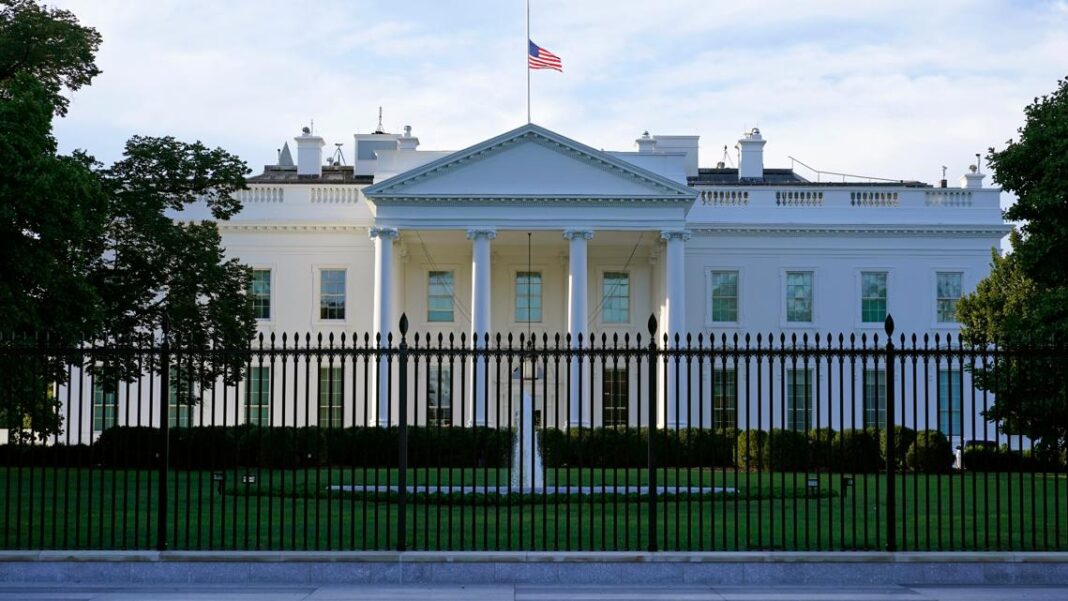The White House’s Office of Management and Budget (OMB) has put forward a proposal to drastically reduce the budget of the U.S. State Department.
Proposal for Major Budget Cuts to State Department
According to internal documents, this plan suggests cutting the budget by nearly 50%, a move that would have far-reaching effects on diplomatic missions and foreign relations. This proposal includes closing several overseas diplomatic missions and reducing the number of diplomatic staff, which could make it more difficult for the U.S. to manage its international affairs effectively.
The White House proposal also outlines eliminating funding for a wide range of international organizations, including the United Nations (UN) and NATO. These organizations are key to international cooperation, humanitarian aid, and peacekeeping efforts across the globe.
If passed, this decision could impact global security, humanitarian efforts, and U.S. influence in international forums.
While the plan has been presented by the White House as part of a broader budget strategy for the State Department, it is still in the very early stages. This means it has not yet been finalized, and it will likely undergo several rounds of review.
Trenčín Becomes Strategic Base as Slovakia Strengthens NATO Ties with New F-16 Service Centre
Lawmakers, including those from both parties in Congress, have historically resisted similar budget cuts in the past, especially when they involve programs related to diplomacy and international partnerships. Therefore, this White House proposal is far from becoming law and will have to go through the legislative process before any changes are made.
Impact on Foreign Assistance and Global Health
The proposed budget cuts from the White House also target foreign assistance programs. These programs are vital for supporting countries in need, such as those recovering from disasters, poverty, and conflict.
The White House-backed plan from the Office of Management and Budget (OMB) suggests halving the foreign assistance funding managed by the State Department and the U.S. Agency for International Development (USAID), which currently stands at $52 billion in 2024.
This cut would eliminate a significant portion of foreign assistance that helps with global health initiatives, education, and other critical programs. For example, the proposal calls for reducing funding for global health initiatives, which support countries in fighting diseases like HIV, tuberculosis, and malaria.
These efforts have saved countless lives, particularly in low-income nations. The new plan would reduce these funds and require global health partners to contribute more to the cause, shifting some of the burden onto other countries.
Why Portugal’s Controversial Exit from the F-35 Deal Raises NATO Concerns
Additionally, the White House proposal includes eliminating funding for major international organizations, such as the United Nations, which plays a central role in providing humanitarian aid and addressing global challenges like poverty, climate change, and conflict.
This cut could weaken the U.S.’s ability to influence global decision-making and collaborate with other countries on shared problems. NATO, the North Atlantic Treaty Organization, would also face cuts under this proposal, potentially affecting international security arrangements and military partnerships.
Cuts to Humanitarian and Immigration Programs
Another major aspect of the White House’s proposed budget cuts is the reduction of humanitarian programs. These programs are essential for supporting refugees, asylum seekers, and other vulnerable groups. Under the White House plan, the office that helps
Afghan allies who are trying to escape Taliban rule would be eliminated. This could hinder efforts to provide safety and resettlement options to those who worked alongside the U.S. during the war in Afghanistan.
Additionally, the U.S. government’s independent watchdog office, which is responsible for monitoring waste and inefficiency in programs, especially in Afghanistan, would also be cut. This office plays an important role in ensuring that taxpayer money is used effectively and that U.S. aid programs are transparent and accountable.
China’s Veiled Warning to US; WZ-9 Drone Could Detect F-35 and B-21
The White House proposal also aims to cut back on refugee and immigration programs, consolidating them under a new bureau for international humanitarian affairs. This change could make it more difficult for individuals fleeing conflict or persecution to find safety in the U.S. and could affect the country’s ability to respond to global refugee crises.
The proposal to drastically cut the State Department’s budget is a bold move that would have wide-ranging consequences for the U.S. government’s ability to manage foreign relations, provide global aid, and contribute to international peace and security. The budget cuts could weaken U.S. diplomatic efforts, reduce support for international organizations, and limit the country’s capacity to address global challenges effectively. However, as this proposal is still in its early stages, it will likely face significant scrutiny and revision before it is presented to Congress for a final decision.

